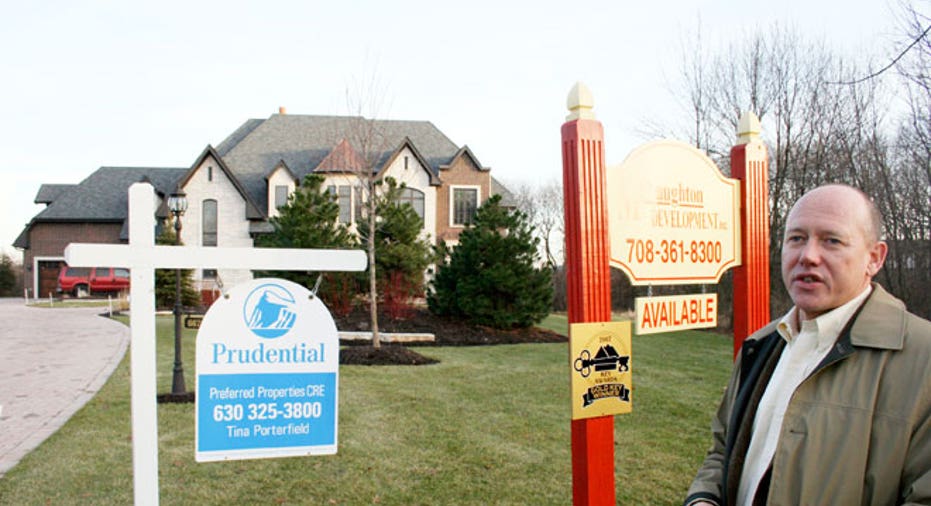Climbing Out After Years of Being Underwater

My hope for 2014 is that home prices continue to rise across a broad swath of the U.S., lifting the nearly 11 million Americans who remain underwater on their home loans out from underneath that albatross.
Recent housing data have shown that home prices are recovering nicely in some major American cities and that the number of home owners who owe more on their mortgages than their homes are worth -- the definition of being underwater -- is falling. But there’s still a long way to go.
I speak on this topic from personal experience.
What a difference eight years makes. We’re a week or two away from closing on a new home. The price of the house we bought in 2013 is $100,000 less than what we paid in 2005 for the house we are now selling. We’ve been underwater on the latter since about 2008.
We were lucky. We’ve been able to cobble together enough money for a 20% down payment on the new house, plus the $22,000 difference between what we owe on our current mortgage and the price at which we agreed to sell the house.
Like I said, we were lucky. We’re not happy about that $22,000. But it’s far more manageable than the six-figure gaps many homeowners are facing between what they owe and what they’re homes are worth.
When the dust settles and we’ve closed on the new house, we’ll have shaved about $800 off our monthly mortgage payment and we’ll no longer carry the burden of knowing we owe more on our mortgage than our house is worth. To the contrary, we’ll have -- and can look forward to gaining -- equity in the biggest investment most of us ever make.
Here’s how it all went down.
Buying at the Peak of the Bubble
My wife and I bought a home in Northern New Jersey in the fall of 2005, at the peak of the U.S. housing bubble. At the time, the strategy for purchasing a nice home in a desirable area ran precisely counter to most recognizable forms of negotiation in which the prospective buyer counters the original price with a lower offer and the two sides negotiate a middle ground.
Instead, if you really wanted the house, the idea then was to come in with an offer well above the asking price in order to squelch a potential bidding war.
Employing that strategy my wife and I paid $489,000 for a beautiful Victorian home near the kids’ schools and within walking distance of a train station, a house that was listed at $449,000.
No big deal, we thought. After all, we had made a $100,000 profit off the home we sold in Rhode Island in order to move back to New Jersey to be closer to family. We paid $250,000 for that home in 2002 and sold it for $350,000 three years later.
We used that $100,000 to put more than 20% down on the new house, signing off on a $389,000 mortgage at about 7%. With New Jersey’s high property taxes, mortgage payments came to about $3,100 a month. We figured it was all worth it if home prices continued to rise.
Then the bottom fell out.
By late 2008 the value of our home had fallen by more than one-third. Zillow calculated that the house was worth maybe $320,000, well below the $370,000 we still owed on our mortgage. Like millions of others of Americans we were underwater.
Granted, we were a far cry from some of the more glaring anecdotes of excess that came to light during the period after the housing bubble burst. It’s hardly uncommon to read of people who paid $500,000 (or more) in 2005 for brand new homes in freshly carved developments on the outskirts of Las Vegas or Salt Lake City only to see the value of those homes fall below $250,000 (or less).
A Dark Cloud Hanging Over Our House
Still, being underwater is like having a dark cloud perpetually hanging over your home. A house is most peoples’ largest investment. As such it sits there like a giant savings account or 401(k) fund. You’re not supposed to anxiously check the value all the time, but you do anyway.
It’s great when the value is increasing. But the helplessness and frustration of watching the value of that giant investment rapidly decline is hard to describe. It was cold comfort knowing the same thing was happening to millions of other Americans.
We quickly realized the tangible fallout of being underwater. Homeowners traditionally borrow against the equity accrued in their homes to make home improvements or cover other big ticket items. For us, without that equity, there was nothing to borrow against and thus no money for home improvements or other big ticket items.
What’s more, we realized we couldn’t move even if we wanted to -- unless we were willing to pay a price. In recent years, our anxieties only grew because it became clearer to us that we wanted to move to an area with better schools.
This past fall we decided to pull the trigger and explore what that price might be. We put the house on the market determined to at least find out what the gap was between what we owed on the mortgage and what we might get for the house. Luckily for us, it turned out to be $22,000, a not unmanageable sum and well worth it.
So we’re starting 2014 with a new home and a smaller mortgage, and saying good riddance to the onerous burden of being underwater. And the kids start at their new school next week.



















